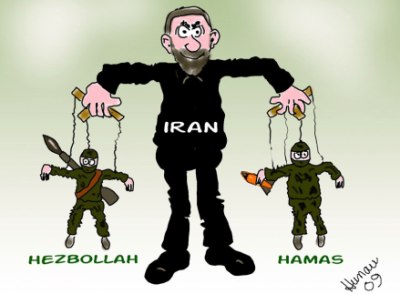 * By: Claude Salhani
* By: Claude Salhani
Intelligence sources in the Middle East have indicated that the summer in the region could turn out to be particularly hot and they’re not talking about global warming or the environment. They are referring to the political climate. Of course, predicting future political moves in the Middle East can be accomplished with the precision of guessing what cards your opponent holds in a game of poker. Pure luck and some experience and your chances for success are still 50-50.
Speaking to this reporter sources who asked not to be identified because of the sensitiveness of the issues said that a series of reports filtering-in from Lebanon and Israel demonstrates that both sides are gearing up for a potential confrontation, once again. That in and of itself is nothing new.
Israel has always been preparing for eventual confrontations with its neighbours. Israel and Hezbollah have engaged in numerous confrontations, the last one as recently as 2006. But what is worrisome about this potential next round of violence is that it involves Iran and when one says Iran, one says oil.
The sources told me that Israel has distributed gas masks to its population in the northern part of the country, the area that would be under direct fire from the Shiite militia’s rockets and artillery emanating from southern Lebanon. Indeed, the presence of the Lebanese Shiite militia in such close proximity to several major Israeli centers of population gives the Islamic Republic of Iran an important beachhead just a few hundred miles north of Israel’s most populous city, Tel Aviv.
Here is what could happen: Iran’s refusal to abide by the international community’s request that is puts a stop to its quest to acquire nuclear technology allowing it to develop nuclear weapons could result in Israel taking unilateral action against the Islamic Republic. Should that occur, there is little doubt that Iran would unleash its proxy militia from Lebanon and have Hezbollah throw everything they have at Israel.
The consequences would be devastating for all sides.
First, no matter how prepared and equipped Israel might be, an all-out assault from Hezbollah, who today is better equipped than the Lebanese army, would cause heavy casualties among the civilian population in northern Israel.
And second, Israel’s repost would be terrible. We have already had an apercu of what happens when Israel unleashes its military might, as was the case in Lebanon in 2006 and in Gaza in 2009.
The end results would be nefarious on many fronts. Consider the following:
1. Civilian casualties are bound to be high on both sides of the dispute.
2. Fighting in the Middle East would frighten away tourists and their much-needed dollars and euros just as the start of the tourist season is about to kick off. As most Westerners tend to lump the Middle East in one basket, it is not only Lebanon and Israel who will suffer from unoccupied hotel rooms and vacant beach resorts, but so too will Egypt, Jordan and other popular destinations.
3. What will be Iran’s reaction in the Gulf region and to international shipping? That remains an unknown factor. Will Iran’s revolutionary guards attack Western oil tankers? All it takes is to sink one or two oil tankers to close the strategic Straits of Hormuz, through which most of the region’s oil flows. Think of the consequences of a sky-rocketing price of oil on today’s wobbly markets.
4. And finally, hardly anyone in the Arab and Muslim world is likely to believe that Israel acted without American consent. What impact is that likely to have on U.S. forces in Iraq, Afghanistan and other spots where U.S. forces are currently deployed?
One safe prediction is that it will set the war on terrorism back by at least ten years. The war the West and its allies are currently fighting cannot be won through military might alone. Hearts and minds must be won in order to achieve final victory. And that is unlikely to happen unless greater emphasis is given to the peace process.
Now you may understand why the Obama administration sees peace in the Middle East as directly related to the security of the United States.
*Claude Salhani is a political analyst specializing in the Middle East.
He is the author of While the Arab World Slept: the impact of the Bush years on the Middle East.

Leave a Reply
You must be logged in to post a comment.